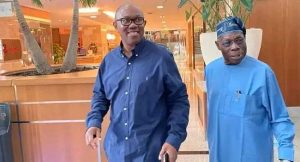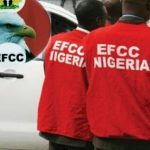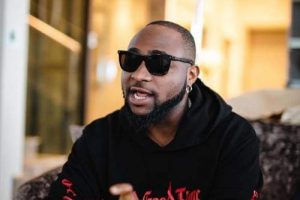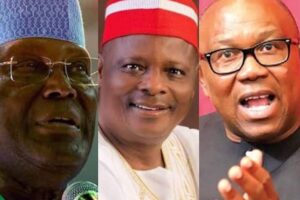Nigeria’s Dangerously Rising Post-election Ethnic Tension, Farooq Kperogi
Nigeria’s Dangerously Rising Post-election Ethnic Tension, Farooq Kperogi
I wasn’t born in the First Republic (i.e., 1960 to 1966) and hadn’t come of age in the Second Republic (i.e., 1979 to 1983), so when I say this year’s presidential election represents the most toxic brew of ethnic and religious chauvinism Nigeria’s democracy has ever had, I’m talking within the limits of my experiential reality.
The three major candidates in the election exploited, to varying degrees, Nigeria’s primordial fault lines to enhance their chances of winning. We’re now contending with the aftershocks of this fact.

But what has kept me awake these past few days is the creeping normalization of genocide-triggering Igbophobia in popular social media discourse, not doubt encouraged by the intolerably violent and maximalist pigheadedness of many of Peter Obi’s Igbo supporters, but dangerous and inexcusable, nonetheless. The attack and murder of Igbo people in Lagos this week is a sad manifestation of this.
The discursive anchor of the growing Igbophobia in the country revolves around the notion that Igbo voters were the only major voting bloc in the country who voted almost wholly for Peter Obi, who is Igbo, and that voters elsewhere were more tolerant and cosmopolitan in their voting behavior.
Obi won in Lagos, a Yoruba state that Tinubu ruled for eight years, and Atiku Abubakar won in Osun State, another Yoruba state where Tinubu was born and where his nephew is the immediate past governor. Tinubu and Atiku almost evenly shared the northern vote. Only Igbo voters voted their kind like a herd and intimidated, even maimed, people who had a different choice from the majority.
This narrative, which seems sensible on the surface, actually dramatizes what we call the dangers of vulgar empiricism in social science scholarship, that is, the idea that everything we see is accurate because our external, unaided senses tell us it is.
For example, when you insert a pen, say a Biro, in a bucket of water, it always looks bent to the naked eye even when it actually isn’t. A vulgar empiricist would insist that it is actually bent because his eyes show him that it is. But reality is mediated by a whole range of factors outside what our senses can apprehend.
The excessive, even exclusionary, emotional investment in Peter Obi’s candidacy among Igbo voters isn’t necessarily the consequence of what Nigerians have called “tribalism.” It’s because of the novelty and unprecedentedness of his candidacy.
Peter Obi is the first and only Igbo presidential candidate in Nigeria’s history whose acceptance transcended the narrow confines of his ethnic cocoon. Not even the great Dr. Nnamdi Azikiwe came remotely close to Obi’s relatively wide pan-Nigerian appeal.
Obi is the first Igbo politician to dilute the historic suspicion and animosity that southern ethnic minorities used to harbor against Igbo politicians (which started after Azikiwe displaced Professor Eyo Ita—from what is now Cross River State— as Head of Government Business of Eastern Nigeria after he lost out to Chief Obafemi Awolowo in Western Nigeria).
Similarly, although northern Christians led the prosecution of the Nigerian Civil War against the Biafra secession, which has created an abiding, if progressively diminishing, distrust between the Igbo people and northern Christians, Obi is wildly popular among northern Christians. Not even Azikiwe who chose Professor Ishaya Audu, a northern Christian, as his running mate two times in 1979 and 1983 had a fraction of the support of northern Christians that Obi has.
Plus, many Yoruba people who define their identities in Christian terms, or who despise Bola Tinubu for any number of reasons, and who resented the prospect of a transition of power from Buhari to Atiku supported and campaigned for Obi.
Sure, the defining imperative for Obi’s support was Christianity (which indicates that should a Christian candidate emerge from either of the major political parties next time, Obi won’t be as popular among Christians as he is now), but it was reasonably pan-regional, certainly more pan-regional than the support any Igbo politician has ever had. It would be unreasonable to expect Igbo people to not rally around such a politician. If other people accept him, what reason do they have to reject him?
Had Obi not had the kind of pan-regional appeal that he has, history tells us that Igbo voters wouldn’t have been passionate about him and would probably have rejected him at the polls. Dim Chukwuemeka Odumegwu Ojukwu, the beloved leader of the defunct Biafra and by far a more charming and charismatic politician than Obi can ever be, didn’t win the Igbo vote when he ran for president in 2003. Olusegun Obasanjo did.
In a perceptive March 2, 2023, essay titled “2023 Elections: Igbos and Bigotry” by Atiku-supporting former aviation minister Osita Chidoka, who is Igbo, we learn that Ojukwu won only about 22 percent of the Igbo vote in 2003. Obasanjo, who is Yoruba, won 68 percent. It’s not fair to label such voters as bigoted.
There is a parallel between Obi’s almost total support among Igbo voters and the bandwagon support Barack Obama enjoyed among Black voters in the United States in 2008, which Olusegun Adeniyi adverted to in his column on the back page of ThisDay. He correctly pointed out that, like Igbo voters, about 95 percent of Black voters voted for Obama.
But the parallels are even more poignant than that. Obama isn’t the first Black person to run for president in modern America. In 1972, Shirley Chisholm became the first Black American to seek the nomination of the Democratic Party. Black voters didn’t troop to vote for her because her candidacy didn’t gain nationwide, multiracial traction.
In 1984 and 1988, storied civil rights icon Jesse Jackson ran for the nomination of the Democratic Party and made more gains than any Black American politician had ever made, yet he didn’t dominate the Black vote.
When Obama emerged in 2007 as a contender for the nomination of the Democratic Party, many Black voters were initially unenthusiastic about him. They thought he wouldn’t win and chose to back Hillary Clinton.
Even when Obama won the primary election in Iowa, an over 90 percent white state, many Black voters still expressed reservations about the possibility of a Black person becoming president, which compelled Michelle Obama to make the (in)famous “ain’t-no-black-people-in-Iowa” speech when she spoke to Black voters here in Atlanta.
“Ain’t no black people in Iowa,” she said forcefully to show that her husband’s appeal transcended color lines. “Something big, something new is happening. Let’s build the future we all know is possible. Let’s show our kids that America is ready for Barack Obama right now.” That was a turning point in Black support for Obama who went on to win more than 90 percent of the Black vote, the highest vote margin any demographic group has ever given to a candidate in an election.
When white conservative Americans accused Black voters of voting for Obama out of racial solidarity, they reminded their white compatriots that they, too, had always voted for white candidates. Had they also been doing that out of racial solidarity? And how about the fact that Black voters had been voting only white candidates since they earned the right to vote? What did that suggest?
Plus, Obama wasn’t the only Black candidate to be nominated to run for office in 2008. Cynthia McKinney, a former Congresswoman from Georgia, also won the nomination of the Green Party, a major third party that has never produced a president. Like Igbo voters didn’t vote for fringe candidates like APP’s Osita Nnadi, ADC’s Dumebi Kachikwu, APGA’s Peter Umeadi, and ZLP’s Dan Nwanyanwu, Black voters didn’t vote for McKinney.
Emotions, as I have always argued, are valid and legitimate constituents of our humanity. They are not inferior to our rationality. Igbo voters voted for Obi in unusually large numbers because of his unexampled acceptance outside the bounds of Igboland. Given that Nigeria has never had an Igbo president, it’s unreasonable to accuse them of bigotry for their choice. Any demographic group with the same circumstances as the Igbo would do the same.
Nonetheless, the extreme political violence in the name of Obi that is now pervading the Southeast needs to stop because it can only add fuel to the fire of Igbophobia nationwide.
Igbo people who resent Obi’s politics (perhaps because, as governor, he fired workers for asking to be paid a measly minimum wage, allowed doctors to go on strike for 13 months leading to needless deaths in hospitals, allowed university teachers to go on strike for six months, made substandard roads that were washed off by the rains, played Catholics against Anglicans to remain in power, etc.) are being squelched and sometimes murdered for being different. That’s as unacceptable as the reigning Igbophobia in Nigeria’s national discourse.
Farooq Kperogi is a renowned Nigerian newspaper columnist and United States-based professor of media studies.








Add Comment